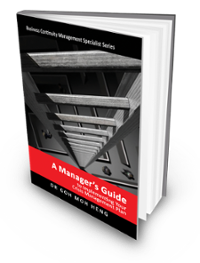Coordinate and Document Command Centre Operations
Due diligence in CM efforts will require completing and successfully implementing response and recovery plans for all critical systems.
Due diligence and cost recovery require excellent documentation of all the information received and the steps taken to respond to emergencies. Documentation such as incident logs, plans, response actions, use of resources, costs incurred and the timeline of activities are crucial when seeking cost recovery and in any subsequent legal proceedings.
The organization will also want to provide up-to-date reports to managers, the media, and stakeholders. There will be a lot going on, so having good reports will be a must.
Automated Logging
All responses to incidents and events must be documented. Automated response and recovery plans that provide a step-by-step process can produce a permanent record of the plan's implementation. Event logs should track the incident's ‘who, what, where and why. Automate as many of these as possible using standard categorizations, pick lists, and time stamps.
Debriefing Reports
Debriefing reports should include executive reports for supervisors, media presentations, and personnel changing shifts at the Command Centre. The ability to automatically generate these reports will be invaluable regarding time saved in a crisis atmosphere.
Find out more about Blended Learning CM-300 [BL-CM-3] & CM-5000 [BL-CM-5]
 |
 |
 |
 |
![TMM [BL-CM-5]](https://no-cache.hubspot.com/cta/default/3893111/54680a64-9914-4958-8cec-1bc451ed5053.png) |
![[BL-CM] [5] Register](https://no-cache.hubspot.com/cta/default/3893111/82024308-16f4-4491-98be-818a882c6286.png) |
 |
Please feel free to send us a note if you have any of these questions to sales.ap@bcm-institute.org |  |






